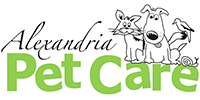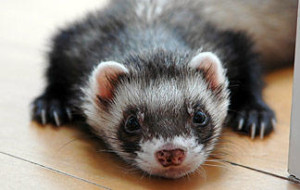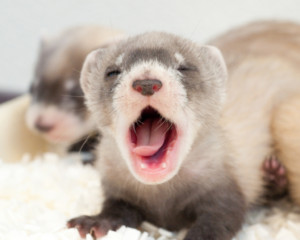Have you thought to yourself, “man, I’d really like to adopt a dog or cat but I just don’t have the time?!”. Well here’s some good news, you can start slow and adopt a Small Animal, or what I like to call: A Starter Pet! Small animals are wonderful starter pets because they live in a contained area, are pretty low maintenance, and still give you the satisfaction of bringing a sweet furry creature into your home.
One of my personal favorite options when it comes to adopting a small animal is a Ferret. Let’s face it, these guys are ADORABLE! They are basically furry snakes with the silliest personalities, and are so fun to have around! You will never find yourself frowning around a Ferret, and that’s just a fact.
So now that we’ve established Ferrets are amazing, what exactly goes into caring for one of these goofy nuggets? Stay tuned, I’m about to tell you!
First and foremost, what exactly is a ferret? Ferrets are members of the weasel family and generally weigh between 1 and 5 lbs. Their life span tends to be between 6 and 10 years, and they are described as friendly, inquisitive, social, and cuddly. These slinky peanuts tend to sleep the day away, about 18-20 hours per day in fact! That is one of the reasons they make such excellent starter pets – while they do sleep a lot, they have quite active bursts of energy in the early morning and the evening, which is perfect for someone who works 9-5.
What do you need if you’re adopting a ferret?
Definitely an enclosure! These guys are known for being little houdinis because of their curious and playful nature. Therefore, it’s important to have a cage designed to keep ferrets safely inside and occupied. The most recommended setup is a multi-level open wire cage with a solid floor and very secure door. Glass enclosures are unsafe for ferrets due to their lack of ventilation. The cage should be located in a quiet area of the home where the temperature can be kept at room temperature (between 60 and 80 degrees). These guys like to burrow and snuggle, so a variety of bedding (old T-shirts, blankets, hammocks, cloth tubes) is ideal. This bedding should be washed at least once a week, as these little dudes can get a bit messy in their kennel! Another cool thing about ferrets is that they can be litter trained! So, a litter box is important, and it should be filled with recycled newspaper products or aspen shavings. Other kinds of litter such as cedar and pine shavings or clumping cat litter should be avoided as they will irritate their respiratory tract, and could be very dangerous if ingested.
Food! Ferrets are carnivores. These guys should be eating ferret food from a pet store, as it has the appropriate nutrients for their diet. Commercial ferret food is high in fat and protein and specifically created to be ingested by ferrets. They should NOT be eating dairy, fruits, veggies, high fiber foods, carbs, or sugar. Of course, like any small mammal, ferrets should have access to fresh water daily via a water bottle attached to their cage.
Toys! Now, because these guys are adorably small and live the majority of their day in an enclosure, this isn’t to say that they don’t need mental and physical stimulation. They are supremely curious and like to explore new things. Like a lot of other animals, they explore with their mouths, and often without thinking first. Therefore, their toys need to be sturdy and “ferret-safe” so that they can’t accidentally ingest something they aren’t supposed to. Ferrets should have out-of-cage time every single day to exercise their brains and their bodies. However, be extra sure to “ferret-proof” the room, as they tend to slip into small cracks and crevices, and may find things to chew on that you wouldn’t even think of! Most importantly, they are lovebugs and will want to spend time with their person! So be sure that they don’t feel neglected and give them lots of playtime and snuggle-time!
Hygiene! So here’s the thing about ferrets: they have a natural musk. A lot of breeders actually de-scent their ferrets prior to adopting them out, which requires the surgical removal of their scent glands. However, this simply removes the ability for ferrets to spray their scent like a skunk (which actually happens quite rarely), and they retain a musk that comes from the natural oils in their skin and hair. The American Ferret Association is 100% against the de-scenting of ferrets, and they recommend these things to keep a ferret’s scent to a minimum: regular combing of their hair, NOT bathing them frequently as this actually heightens the amount of oil in their skin, changing their bedding at least once a week, keeping their kennel and litter box clean. A small musk is a natural part of owning a ferret, but you can help them stay clean by keeping their environment clean, trimming their nails regularly, and brushing their teeth (if they let you)!
Health! While ferrets are cute and little and relatively low maintenance, just like any pet, they can have health concerns. The fact is, when you adopt an animal, you don’t always know what health issues are coming down the line, and it’s important to be prepared for the possibility of anything! Again, because ferrets are so curious and tend to explore with their mouths, they are prone to health problems resulting from the ingestion of things they should NOT be eating such as ulcers and gastric blockages. Additionally, they can be prone to diseases of the adrenal glands and/of the pancreas. Luckily there are several options for treating these conditions if caught early, so it’s important to take your ferret in for checkups every 6-12 months. Just like cats and dogs, these little guys need vaccinations for distemper and rabies, frequent examinations for parasites, flea and tick preventatives, dental cleaning, and blood tests to ensure they are healthy and functioning A-OK!
Where can I adopt a Ferret?
Great question! There are several ferret rescues in the area, including the Washington Metropolitan Area Ferret Outreach and the Nirvana Ridge Ferret Rescue. Additionally, local shelters including the Animal Welfare League of Alexandria, The Animal Welfare League of Arlington, and The Humane Rescue Alliance in DC often have ferrets up for adoption. It’s a great idea to adopt these guys in pairs so they can have a buddy to snuggle and play with when you aren’t home!
If you have ANY questions about ferret care or adoption, I 100% recommend calling your local shelter to inquire.










